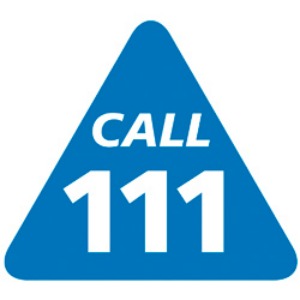CQC brands NHS 111 provider inadequate as patients put ‘at risk of harm’

The CQC has branded an NHS 111 provider ‘inadequate’, after finding that some calls taken by staff who were not trained to assess patients’ symptoms, which was putting patients ’at risk of harm’.
A report by the regulator of health and social care in England on South Western Ambulance Service NHS Foundation Trust, which runs NHS 111 for Plymouth, Devon and Cornwall, said that calls were taking too long to be answered and there was a problem with understaffing.
It is the latest in a series of problems affecting the helpline.
The report said: ’Inspectors found that there were often not enough staff to take calls, or to give clinical advice when that was needed. Staff reported working long hours, many feeling high levels of stress and fatigue.’
It highlighted the ‘high staff turnover and high sickness rates’, adding: ’Too many calls were abandoned, and patients were waiting too long for their calls to be answered and to be assessed, or to receive a callback with appropriate advice.’
The report also said: ’Calls were sometimes answered by staff who were not trained to assess patients’ symptoms and there was a risk that patients needing urgent attention were not given priority or could be put into a long queue awaiting call back.’
The trust has been told that it must make significant improvements by 8 July, including:
- Review staff numbers to ensure patients can get timely care and treatment when first calling the service and when receiving a callback.
- Review the roles and responsibilities of Non Pathway Advisors (call handlers who are not trained to use the NHS Pathways triaging system) ensuring callers consistently receive the correct level of advice.
- Ensure that call queues awaiting initial assessment and call back are robustly monitored and managed by staff with clinical authority to intervene and allocate resources.
Professor Mike Richards, chief inspector of hospitals, said: ‘We found that patients were at risk of harm because the triaging system was not good enough. Too many people whose call was urgent were not being assessed in relation to their medical needs in a timely manner. A lot of people needing less urgent advice might have to wait all day for a call back.’
A statement on the trust’s website from its chief executive, Ken Wenman, said: “The trust has always been open and transparent and welcomes the CQC report into the delivery of NHS 111 services. We treat every patient as our only patient and we want every patient that makes contact with us to have a first class service from an outstanding group of highly committed staff.
’Nobody knows our organisation and staff like we do and there were no surprises in the main findings of the report as we have already been working collaboratively with our commissioners, NHS Improvement and NHS England colleagues to make improvements.
’We are never complacent on patient safety. Could we do better? Of course we could. Will we learn from this inspection? Of course we will.’
GPs have called for NHS 111 to be scrapped, saying that non-medically trained call handlers should not be giving patients advice.
In January, a report found that NHS 111 call handlers were unable to identify potentially fatal cases of sepsis because the algorithm used by NHS 111 is not sensitive enough to pick up red flags, according to a report into the death of a 12-month-old boy in Cornwall in 2014.









